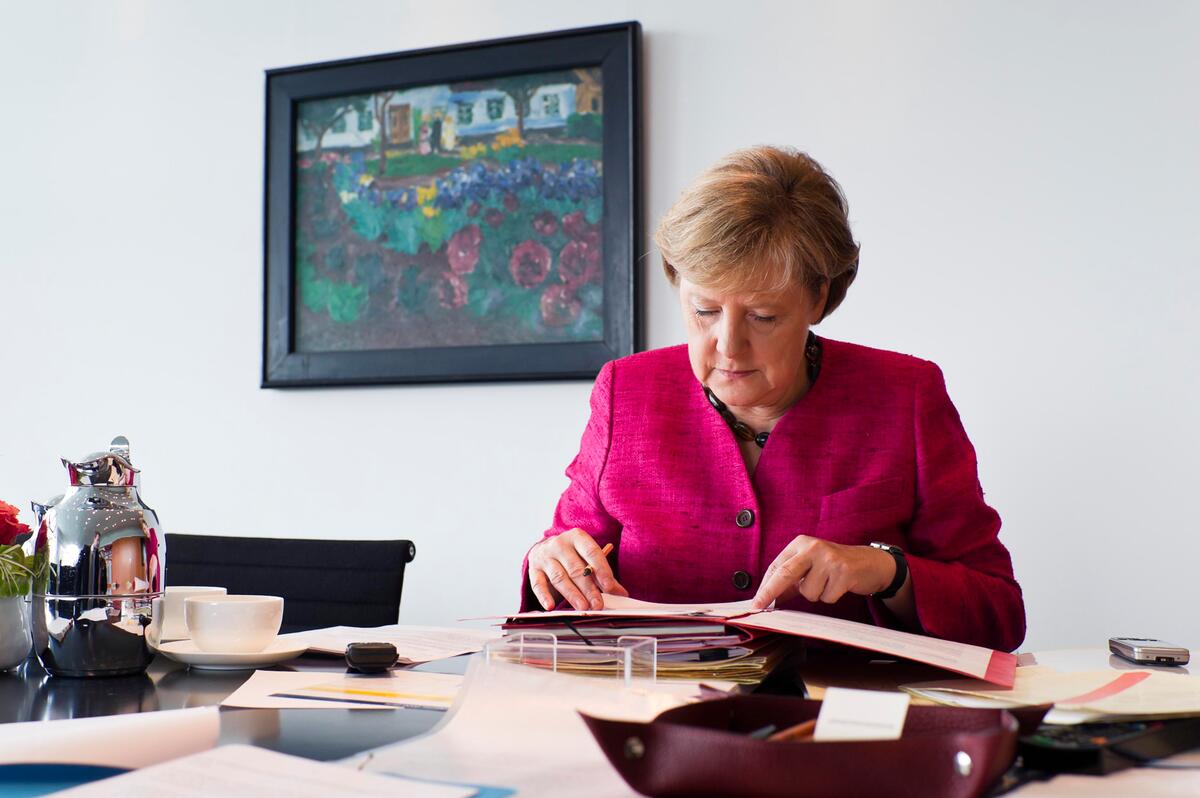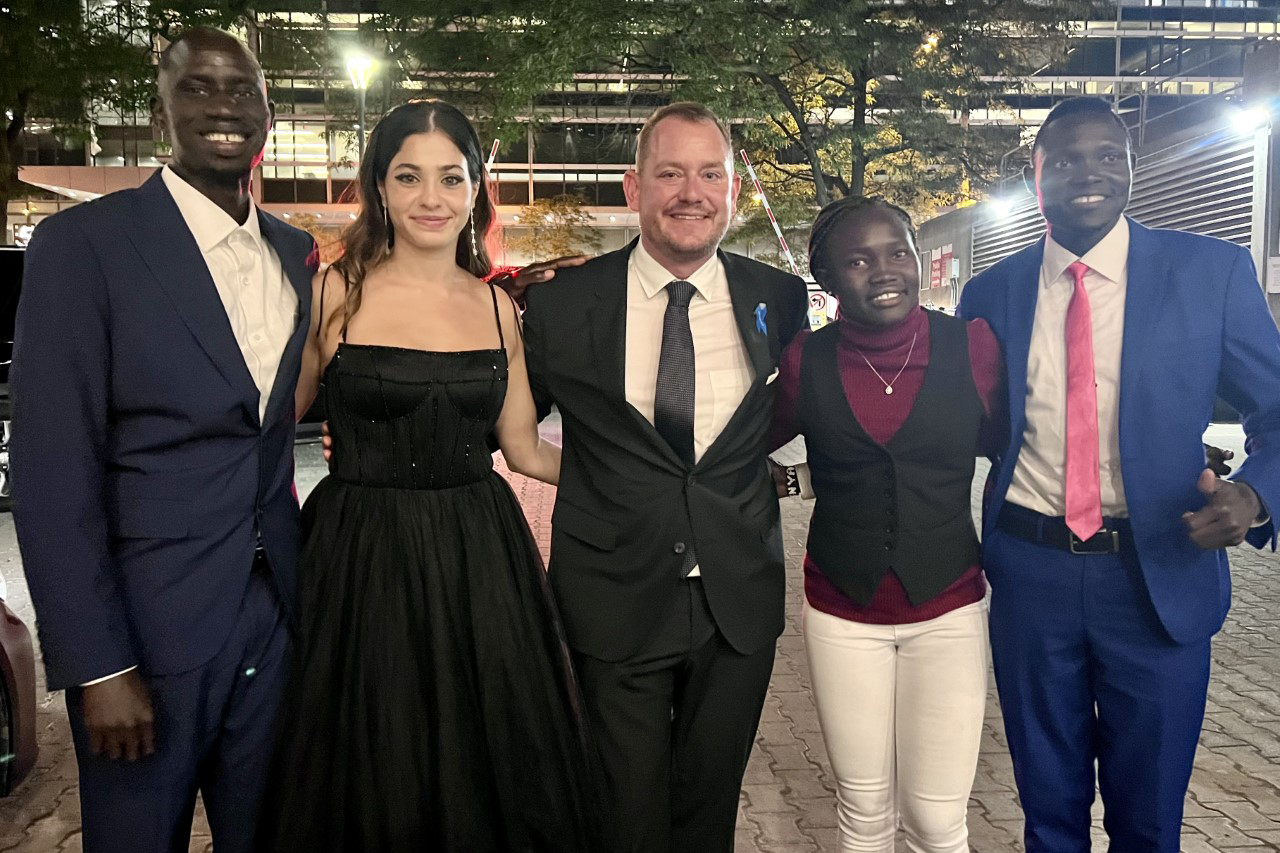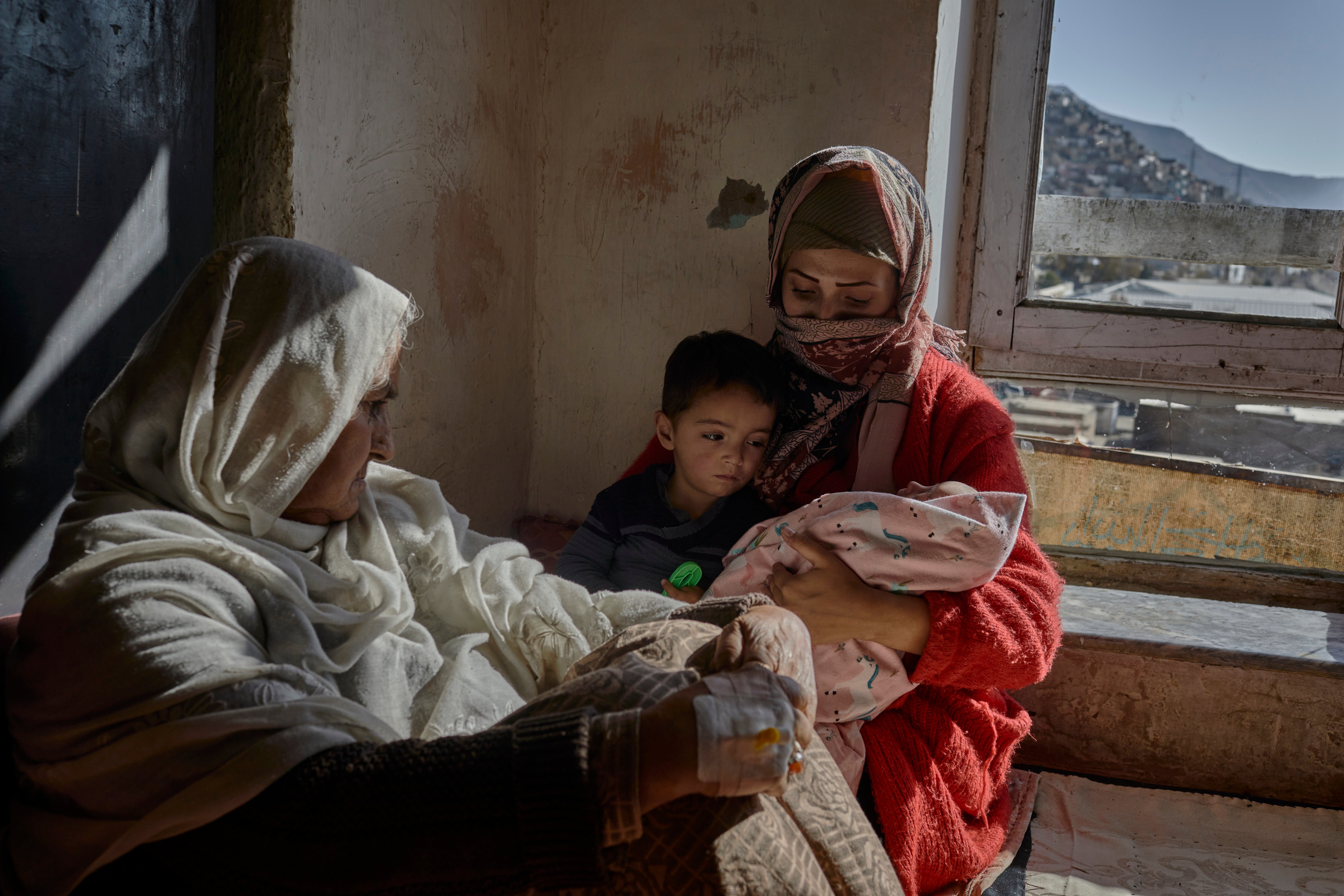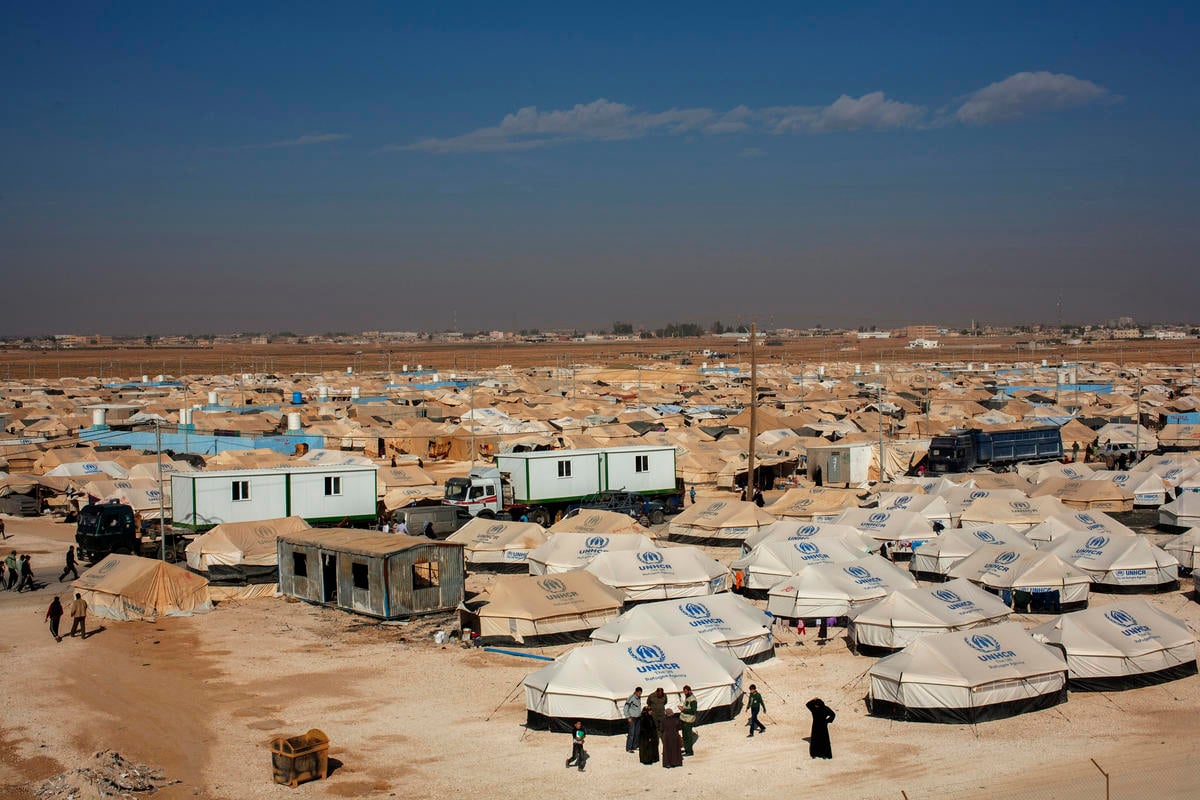Syrian centenarian dreams of European reunion with family
Syrian centenarian dreams of European reunion with family

Aged over 100, Syrian great-grandmother Eida Karmi planned to live out her days in her home village in north-eastern Syria. She doubted she would ever see her family again after they fled the war and settled in Germany.
Now an unlikely refugee herself, she has arrived in Greece and dreams of reuniting with them.
As the conflict in Syria worsened, she left her village in the northeastern province of Al-Hasakah for the first time and headed for Greece in September with the help of a family she did not know. The father carried her most of the way on his back.
Born under the Ottoman Empire, Eida has lived through two world wars and, more recently, the destruction of her homeland. Most of her relatives -- children, grandchildren and great-grandchildren -- left for Turkey or Europe in 2011, in the early days of the war. She was the last to remain in Syria.
For now, Eida lives in an Athens apartment as part of the municipality's accommodation programme, which provides more than 200 units for about 1,600 asylum-seekers.
It is part of a broader programme administered by UNHCR, the UN Refugee Agency, and funded by the European Commission, which has provided more than 20,000 places in temporary flats and hotels at special rates and with host families. The programme focuses on candidates for the European Union relocation mechanism, giving priority to vulnerable asylum-seekers such as the elderly or pregnant women.
Eida lives with the family that brought her to Europe. They are 31-year-old Ahmed Sido, his 27-year-old wife Berivan, and their five children. Their youngest child, Mahmoud, was born in an Athens hospital on 19 October. One of their children was killed when their home was bombed in 2013.
“I can barely walk. I made it this far, and now I hope to see them again and that they will take care of me"
"I need to see my family," Eida said with determination. "I have pains in my hips and knees. I can barely walk. I made it this far, and now I hope to see them again and that they will take care of me."
Ahmed carried her on his back for much of the way. "It's because of this man that I'm here," she said. By the time they reached Greece, she added, they had become her adopted family. The Sido children call her "Anne", the Turkish word for mother.
Eida is not sure of the year she was born. Her Syrian passport lists her date of birth as January 1, 1890, which would make her 126, the world's oldest woman. Eida laughed at the mistake. She insisted she was "a few years older than 100". Her village did not keep birth records when she was a child, she said.

She never went to school or learned to read or write. She speaks only her Kurdish Kurmanji dialect. Eida's father died when she was young and her mother abandoned her when she was 14. Soon afterwards, she married and went on to have nine children.
It was not a happy marriage, Eida said, and the two decades since her husband's death had been her most peaceful. In the past five years, nearly everyone from her village had fled Syria, including her own family.
Those who remained were a few elderly people too frail to escape. Eida lived alone, looking after herself and tending the onions, tomatoes, cucumbers and garlic in her garden.
"I had very little, but it was everything I needed," she said. "My garden, it was beautiful. But now all of Syria is ruined."
Earlier this summer, Eida's 22-year-old grandson, Samir Dodo, who lives in Germany, got in touch with Ahmed, an old friend, to seek his help getting Eida to safety. Ahmed, a factory worker, travelled three hours to Eida's village to collect her.
Eida said goodbye to her garden and the only home she had known. The group set off on a journey that took weeks, through checkpoints in Syria and across the closed Turkish border. That part of their journey cost 1,500 euros per adult, children half that amount.
"I grew up without my mother and father, so it was like she became my mother"
Berivan described the hardship of the journey. "I was pregnant and had to carry four children by myself," she said. "Ahmed was carrying Eida."
Asked what kept the family going during their dangerous journey, Ahmed said: "It was the fear of God. And I grew up without my mother and father, so it was like she became my mother."
Once in Turkey, they made three attempts to enter Greece. Twice they crossed at the northern land border, but Greek authorities sent them back. Then they tried another route, paying smugglers to take them in an inflatable boat across the Aegean. It was crammed with 18 people and they feared they might not make it, Ahmed said. However, they landed on Lesbos on 6 September.
There they spent more than a month in Moria, an overcrowded reception and processing centre for refugees on Lesbos. Finally, they reached Athens.
Under the EU Dublin Regulation, Eida could be reunited with her grandson in Germany at the discretion of the authorities. In practice, the procedure can take between several months and more than a year.
"This is too long," said Samir, her grandson, who has lived in the northern German city of Oldenburg for five years with his mother and sisters. "We want her to come soon, so she can live her last days with us."
UNHCR has pressed for quicker family reunion procedures, particularly in vulnerable cases involving unaccompanied minors or the elderly and disabled. It calls for EU member states to broaden their definition of a family, and to increase cooperation to ensure those entitled to reunion are brought back together.
For Eida, rejoining her family would be a dream come true.








